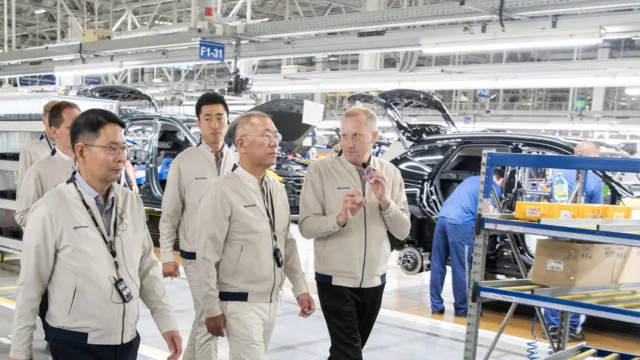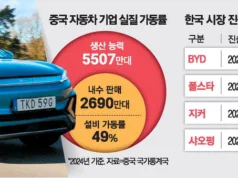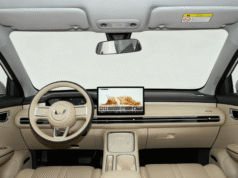Only four Chinese EV makers stay profitable, as Europe faces surge of low-cost imports

As China grapples with a glut of electric vehicles coupled with an intensifying price war at home, more low-cost Chinese EVs are now flowing into Europe — the world’s second-largest EV market, increasing competitive pressure on Hyundai Motor Group.
A report released Monday by the Korea Automotive Technology Institute shows the scale of China’s oversupply problem. China’s auto production capacity reached 55.07 million vehicles in 2024, more than twice its domestic sales of 26.9 million.
Major automakers operated at around 72.2 percent capacity, but when smaller players are included, the utilization rate drops to roughly 50 percent — well below the 75 percent level typically considered a warning line for overcapacity.
This industry glut has fueled a cutthroat price war, significantly eroding profitability among China’s automakers. The average selling price of EVs — led by BYD — dropped 22.6 percent from $31,000 in 2021 to $24,000 in 2024, while the sector’s average profit margin plunged from 8 percent in 2017 to 4.3 percent last year.
Out of roughly 130 Chinese EV manufacturers, only four — BYD, Tesla China, Li Auto and Geely — recorded a profit in 2024. New York-based consulting firm AlixPartners projects that only about 15 firms are likely to remain financially viable by 2030.
In response, Beijing has excluded EVs from its long-standing list of state-supported strategic industries and initiated restructuring efforts. However, the report warns that the issue is unlikely to be resolved soon, noting that as some Chinese automakers pivot to exports due to weak domestic demand, the rapid expansion of low-priced EVs abroad is transferring price pressures to global markets.
Experts say Chinese EV manufacturers’ aggressive export push is likely to heat up global price competition — particularly in Europe, where policies promoting eco-friendly vehicles are stronger than in North America — posing new challenges for Hyundai Motor Group as it seeks to expand its foothold in the region.
“With the US (the world’s third-largest EV market) losing momentum in battery-powered vehicles after scrapping purchase subsidies in September, Europe has emerged as a key battleground for Hyundai and Kia,” said Kim Pil-su, a car engineering professor at Daelim University.
“But the significant price advantage held by Chinese rivals — even with tariffs of up to around 35 percent on Chinese-made EVs — is concerning, as they are effectively tapping into price-sensitive European buyers with price dumping.”
During their recent earnings call, Hyundai Motor and Kia highlighted the rapid expansion of the European EV market — primarily driven by the EU’s stringent carbon-reduction regulations — as a key driver behind their strong overall EV sales.
According to data from the European Automobile Manufacturers’ Association, Hyundai Motor and Kia’s combined car sales in Europe rose 3.3 percent year-on-year in August to 68,923 vehicles, propelled by a strong demand for eco-friendly models. The two brands captured an 8.7 percent market share, down 0.1 percentage point from a year earlier.
However, Chinese automakers sharply expanded their presence in Europe, capturing a 5.5 percent market share in the same month with over 43,500 units sold — a 121 percent surge year-on-year — boosted by a strong increase in exports of plug-in hybrid and hybrid EVs.
Notably, Kia has positioned itself at the forefront of directly competing with Chinese competitors — including BYD, British-based Morris Garages owned by Shanghai Automotive Industry Corp. and Geely’s Zeekr — in the compact EV segment in Europe, with launches of the EV4, EV5 and EV2 slated for later this month.
“It would be challenging to compete head-on with China on price,” noted Kim. “Hyundai and Kia are expected to seek price-competitiveness while leading in EV driving range and battery technology, but the gap with Chinese rivals is rapidly closing.”
In the conference call, Kim Seung-jun, chief financial officer of Kia, said, “There is about a 25 percent price gap with Chinese competitors, and unlike in the past, we can no longer raise prices when costs increase, making price-based competition increasingly difficult.”
By Byun Hye-jin (hyejin2@heraldcorp.com)







